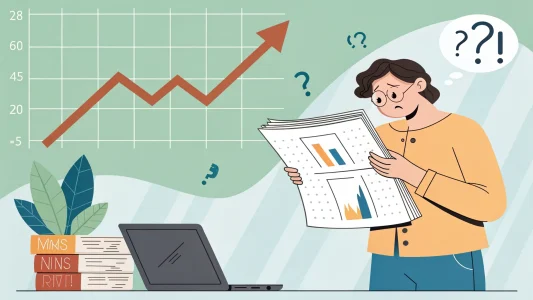The Social Security program is critical to many Americans’ retirement plans. However, recent announcements from the Social Security government website have indicated that benefits will be reduced by 20% starting in 2034. This news has sparked a wave of concern among soon-to-be retirees, prompting them to question when they should begin receiving their Social Security benefits. As a certified financial planner, I aim to clarify this issue and guide you through the decision-making process.
Table of Contents
ToggleUnderstanding Social Security benefits
Social Security benefits are a government-provided safety net for retirees, designed to replace a portion of your pre-retirement income. The amount you receive depends on your lifetime earnings, the age at which you start claiming benefits, and your life expectancy. It’s a complex system, but understanding it can help you maximize your retirement years.
View this post on Instagram
A post shared by Taylor Sohns – CFP®, CIMA®, MBA – Finance (@lifegoalinvestments)
The full retirement age and the breakeven age
The Full Retirement Age (FRA) is the age at which you can receive 100% of your Social Security benefits. This age varies depending on your birth year, but it falls between 66 and 67 years for most people today.
On the other hand, the Breakeven Age is the age at which the total benefits received by delaying Social Security surpass the total benefits received by taking them early. According to a study by Fidelity, the current breakeven age is 77.9 years old. If you live beyond this age, you will receive more total benefits by waiting until your FRA to start claiming.
The impact of the 20% reduction in benefits
The projected 20% reduction in benefits starting in 2034 complicates the decision of when to start claiming Social Security. This reduction likely pushes the breakeven age out even further. Therefore, if you delay claiming until your FRA, you would need to live even longer than 77.9 years old to receive more total benefits than if you had started claiming early.
Life expectancy considerations
The current life expectancy of an American is 77.5 years old. This is slightly below the breakeven age of 77.9 years, even before considering the 20% benefit reduction. This suggests that most people would receive total benefits by claiming Social Security early rather than waiting until their Full Retirement Age (FRA).
Conclusion: When should you start claiming Social Security?
Given the impending 20% reduction in benefits and the current life expectancy, most people should consider taking Social Security as early as possible. However, this decision is highly personal and depends on various factors, including your health, financial situation, and retirement goals.
Making an informed decision about when to start claiming Social Security benefits is crucial. This decision will significantly impact your retirement financial security. Therefore, consulting with a certified financial planner who can provide personalized advice based on your specific circumstances is advisable.
Remember, knowledge is power. Share this information with your loved ones to help them make informed decisions about their retirement. Stay tuned for daily financial insights directly from a certified financial planner.
Frequently Asked Questions
Q. What are Social Security benefits?
Social Security benefits are a government-provided safety net for retirees, designed to replace a portion of your pre-retirement income. The amount you receive depends on your lifetime earnings, the age at which you start claiming benefits, and your life expectancy.
Q. What is the Full Retirement Age and the Breakeven Age?
The Full Retirement Age (FRA) is the age at which you can receive 100% of your Social Security benefits. This age varies depending on your birth year, but it falls between 66 and 67 years for most people today. The Breakeven Age is when the total benefits received by delaying Social Security surpass those obtained by taking them early. According to a study by Fidelity, the current breakeven age is 77.9 years old.
Q. How will the 20% benefit reduction starting in 2034 impact me?
The projected 20% reduction in benefits starting in 2034 complicates the decision of when to start claiming Social Security. This reduction likely pushes the breakeven age out even further. Therefore, if you delay claiming until your FRA, you would need to live even longer than 77.9 years old to receive more total benefits than if you had started claiming early.
Q. What are the life expectancy considerations for Social Security?
The current life expectancy of an American is 77.5 years old. This is slightly below the breakeven age of 77.9 years old, even before considering the 20% benefit reduction. This suggests that most people would benefit more by claiming Social Security early rather than waiting until their FRA.
Q. When should I start claiming Social Security?
Given the impending 20% reduction in benefits and the current life expectancy, most people should consider taking Social Security as early as possible. However, this decision is highly personal and depends on various factors, including your health, financial situation, and retirement goals. It is advisable to consult with a certified financial planner who can provide personalized advice based on your specific circumstances.

















